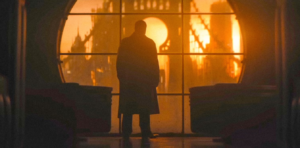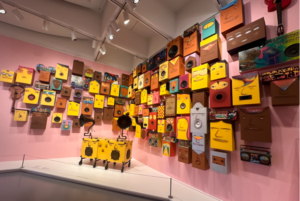Review of CUA Production: A Winter’s Tale

Image Courtesy of The Rome School of Music, Drama & Art
By Tiffani Stitz
The Rome School of Music, Drama, and Art produced Shakespeare`s A Winter’s Tale on February 22 to 25. The Hartke Theater was completely transformed into this Shakespearean world and the play drew in large audiences throughout the weekend.
A Winter’s Tale tells the story of King Leontes, a jealous ruler who wrongly accuses his wife, Hermoine, of adultery with his best friend. This results in him banishing both Hermoine and his unborn daughter, Perdita. Leontes orders his staff to leave the baby to die in the woods. 16 years later, after she was found and raised by shepherds, she was reunited with her father. After Perdita falls in love with the son of King Leontes` friend, the kingdom’s harmony is restored.
This story is one of the most well-known Shakespeare works and has connected with different generations for centuries. In the CUA production, as directed by M.F.A. candidate Jenna Place, the plot of this story remains similar to the original. However, different acts involve the story taking place in different decades, as the first act takes place in the 1970s and the next act takes place in the 1990s which gives this show a whole new feel.
The cast of this production doubled as the crew and is therefore fully credited for combining these period-specific elements, all while staying true to the plot.
The Rome School produces a Shakespeare play every few years, with the last being Hamlet in 2021. A Winter Tale had a very good turnout and delivered everything and more to the audiences – for all four performances.
While this show is extremely different from the production of Crimes of The Heart, which was put on by the Drama department in the fall semester, both showed audiences the versatility of the actors in this program. These actors dove deep into complex characters and allowed audiences to go along on the journey with them. This was achieved by the cast’s dedication to the story, as well as their characters, which made this production so intriguing to watch.
Many students who went to see this production did not know what to expect but were pleasantly surprised by how effectively the actors could give life to a story that was created centuries before their lives began. The success of this production can be attributed to both Place’s thoughtful directing and the actors’ hard work.
The use of the space in particular made this production stand out. Firstly, the actors had a great relationship with the set they were working in, and consequently with each other, which allowed for this production to have a great flow and synergy.
The actors also were innovative in taking up space, as they used the stage and house to encapsulate the audience into their world fully. For example, actors would use the theater entrances and exits when interacting with each other and the set, which gave this production a very interactive feel in what is usually a traditional proscenium setting.
Further, the stage design enabled audiences to understand the transition of eras between acts. The retro costume pieces and period-specific props, such as the video camera, indicated that the dialogue was taking place in the 1970’s. In the second act, which occurs approximately 15 to 20 years later, the audience observes the growth of the characters (most evidently through Perdita, who is a newborn in the first act, and a 16-year-old in the second), while also noting a significant shift in aesthetics. For example, the costumes, set pieces, and flow of movement on stage are much brighter and flashier in the second act, which exemplifies the 1990s.
The many moving parts of this production all worked so well together and gave this story a sense of dimension and meaning. The complex themes of jealousy, loneliness, compassion, and forgiveness are what make this story timeless, and were perfectly captured by the creative team for this production.
This show was another success for the Rome School and has become a hit amongst students. While this was the last play of the semester, upcoming projects include the mainstage opera, Elixir of Love from March 21-24, and the mainstage musical Pippin from April 19-21.





